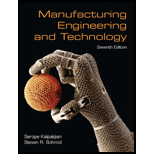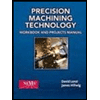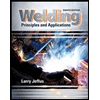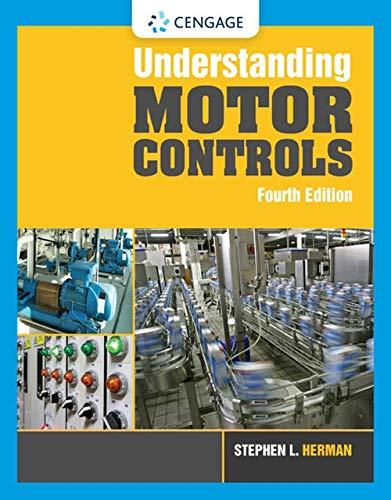
Manufacturing Engineering & Technology
7th Edition
ISBN: 9780133128741
Author: Serope Kalpakjian, Steven Schmid
Publisher: Prentice Hall
expand_more
expand_more
format_list_bulleted
Concept explainers
Textbook Question
Chapter 21, Problem 19QLP
Are the locations of maximum temperature and crater wear related? If so, explain why.
Expert Solution & Answer
Want to see the full answer?
Check out a sample textbook solution
Students have asked these similar questions
CE-112 please solve this problem step by step and give me the correct answer
CE-112 solve this problem step by step and give me the correct answer please
Please do not use any AI tools to solve this question.
I need a fully manual, step-by-step solution with clear explanations, as if it were done by a human tutor.
No AI-generated responses, please.
Chapter 21 Solutions
Manufacturing Engineering & Technology
Ch. 21 - Explain why continuous chips are not necessarily...Ch. 21 - Name the factors that contribute to the formation...Ch. 21 - What is the cutting ratio? Is it always less than...Ch. 21 - Explain the difference between positive and...Ch. 21 - Explain how a dull tool can lead to negative rake...Ch. 21 - Comment on the role and importance relief angle.Ch. 21 - Explain the difference between discontinuous chips...Ch. 21 - Why should we be interested in the magnitude of...Ch. 21 - What are the differences between orthogonal and...Ch. 21 - What is a BUE? Why does it form?
Ch. 21 - Is there any advantage to having a built-up edge...Ch. 21 - What is the function of chip breakers? How do they...Ch. 21 - Identify the forces involved in a cutting...Ch. 21 - Explain the characteristics of different types of...Ch. 21 - List the factors that contribute to poor surface...Ch. 21 - Explain what is meant by the term machinability...Ch. 21 - What is shaving in machining? When would it be...Ch. 21 - List reasons that machining operations may be...Ch. 21 - Are the locations of maximum temperature and...Ch. 21 - Is material ductility important for machinability?...Ch. 21 - Explain why studying the types of chips produced...Ch. 21 - Prob. 22QLPCh. 21 - Tool life can be almost infinite at low cutting...Ch. 21 - Explain the consequences of allowing temperatures...Ch. 21 - The cutting force increases with the depth of cut...Ch. 21 - Why is it not always advisable to increase the...Ch. 21 - What are the consequences if a cutting tool chips?Ch. 21 - What are the effects of performing a cutting...Ch. 21 - Prob. 29QLPCh. 21 - Prob. 30QLPCh. 21 - Prob. 31QLPCh. 21 - Prob. 32QLPCh. 21 - Comment on your observations regarding Figs. 21.1...Ch. 21 - Prob. 34QLPCh. 21 - Comment on your observations regarding the...Ch. 21 - Why does the temperature in cutting depend on the...Ch. 21 - You will note that the values of a and b in Eq....Ch. 21 - Prob. 38QLPCh. 21 - Prob. 39QLPCh. 21 - Explain whether it is desirable to have a high or...Ch. 21 - The Taylor tool-life equation is directly...Ch. 21 - Prob. 42QLPCh. 21 - Why are tool temperatures low at low cutting...Ch. 21 - Can high-speed machining be performed without the...Ch. 21 - Prob. 45QLPCh. 21 - Prob. 46QLPCh. 21 - State whether or not the following statements are...Ch. 21 - Let n = 0.5 and C = 400 in the Taylor equation for...Ch. 21 - Assume that, in orthogonal cutting, the rake angle...Ch. 21 - Prob. 50QTPCh. 21 - Prob. 51QTPCh. 21 - Using trigonometric relationships, derive an...Ch. 21 - An orthogonal cutting operation is being carried...Ch. 21 - Prob. 54QTPCh. 21 - Prob. 55QTPCh. 21 - Prob. 56QTPCh. 21 - Show that, for the same shear angle, there are two...Ch. 21 - With appropriate diagrams, show how the use of a...Ch. 21 - In a cutting operation using a 5 rake angle, the...Ch. 21 - For a turning operation using a ceramic cutting...Ch. 21 - In Example 21.3, if the cutting speed V is...Ch. 21 - Using Eq. (21.30), select an appropriate feed for...Ch. 21 - With a carbide tool, the temperature in a cutting...Ch. 21 - The following flank wear data were collected in a...Ch. 21 - The following data are available from orthogonal...Ch. 21 - Prob. 66QTPCh. 21 - Design an experimental setup whereby orthogonal...Ch. 21 - Describe your thoughts on whether chips produced...Ch. 21 - Recall that cutting tools can be designed so that...Ch. 21 - Recall that the chip-formation mechanism also can...Ch. 21 - Prob. 73SDPCh. 21 - Describe your thoughts regarding the recycling of...Ch. 21 - List products that can be directly produced from...Ch. 21 - Obtain a wood planer and some wood specimens. Show...Ch. 21 - It has been noted that the chips from certain...Ch. 21 - As we have seen, chips carry away the majority of...
Knowledge Booster
Learn more about
Need a deep-dive on the concept behind this application? Look no further. Learn more about this topic, mechanical-engineering and related others by exploring similar questions and additional content below.Similar questions
- Please do not use any AI tools to solve this question. I need a fully manual, step-by-step solution with clear explanations, as if it were done by a human tutor. No AI-generated responses, please.arrow_forwardCE-112 please solve this problem step by step and give me the correct answerarrow_forwardCE-112 please solve this problem step by step and give me the correct asnwerarrow_forward
- this is an old practice exam, the answer is Ax = -4, Ay = -12,Az = 32.5, Bx= 34, Bz = 5, By = 0 but how?arrow_forwardThis is an old practice exam, the answer is Ax = Az = 0, Ay = 2000, TDE = 4750, Cx = 2000, Cy = 2000, Cz = -800 but how?arrow_forwardthis is an old practice exam, the answer is Fmin = 290.5lb but howarrow_forward
- This is an exam review question. The answer is Pmin = 622.9 lb but whyarrow_forwardPlease do not use any AI tools to solve this question. I need a fully manual, step-by-step solution with clear explanations, as if it were done by a human tutor. No AI-generated responses, please.arrow_forwardPlease do not use any AI tools to solve this question. I need a fully manual, step-by-step solution with clear explanations, as if it were done by a human tutor. No AI-generated responses, please.arrow_forward
- Please do not use any AI tools to solve this question. I need a fully manual, step-by-step solution with clear explanations, as if it were done by a human tutor. No AI-generated responses, please.arrow_forwardThis is an old practice exam. Fce = 110lb and FBCD = 62 lb but whyarrow_forwardQuiz/An eccentrically loaded bracket is welded to the support as shown in Figure below. The load is static. The weld size for weld w1 is h1 = 4mm, for w2 h2 = 6mm, and for w3 is h3 =6.5 mm. Determine the safety factor (S.f) for the welds. F=29 kN. Use an AWS Electrode type (E100xx). 163 mm S 133 mm 140 mm Please solve the question above I solved the question but I'm sure the answer is wrong the link : https://drive.google.com/file/d/1w5UD2EPDiaKSx3W33aj Rv0olChuXtrQx/view?usp=sharingarrow_forward
arrow_back_ios
SEE MORE QUESTIONS
arrow_forward_ios
Recommended textbooks for you
 Precision Machining Technology (MindTap Course Li...Mechanical EngineeringISBN:9781285444543Author:Peter J. Hoffman, Eric S. Hopewell, Brian JanesPublisher:Cengage Learning
Precision Machining Technology (MindTap Course Li...Mechanical EngineeringISBN:9781285444543Author:Peter J. Hoffman, Eric S. Hopewell, Brian JanesPublisher:Cengage Learning Welding: Principles and Applications (MindTap Cou...Mechanical EngineeringISBN:9781305494695Author:Larry JeffusPublisher:Cengage Learning
Welding: Principles and Applications (MindTap Cou...Mechanical EngineeringISBN:9781305494695Author:Larry JeffusPublisher:Cengage Learning Refrigeration and Air Conditioning Technology (Mi...Mechanical EngineeringISBN:9781305578296Author:John Tomczyk, Eugene Silberstein, Bill Whitman, Bill JohnsonPublisher:Cengage Learning
Refrigeration and Air Conditioning Technology (Mi...Mechanical EngineeringISBN:9781305578296Author:John Tomczyk, Eugene Silberstein, Bill Whitman, Bill JohnsonPublisher:Cengage Learning Understanding Motor ControlsMechanical EngineeringISBN:9781337798686Author:Stephen L. HermanPublisher:Delmar Cengage Learning
Understanding Motor ControlsMechanical EngineeringISBN:9781337798686Author:Stephen L. HermanPublisher:Delmar Cengage Learning

Precision Machining Technology (MindTap Course Li...
Mechanical Engineering
ISBN:9781285444543
Author:Peter J. Hoffman, Eric S. Hopewell, Brian Janes
Publisher:Cengage Learning

Welding: Principles and Applications (MindTap Cou...
Mechanical Engineering
ISBN:9781305494695
Author:Larry Jeffus
Publisher:Cengage Learning

Refrigeration and Air Conditioning Technology (Mi...
Mechanical Engineering
ISBN:9781305578296
Author:John Tomczyk, Eugene Silberstein, Bill Whitman, Bill Johnson
Publisher:Cengage Learning

Understanding Motor Controls
Mechanical Engineering
ISBN:9781337798686
Author:Stephen L. Herman
Publisher:Delmar Cengage Learning
Material Properties 101; Author: Real Engineering;https://www.youtube.com/watch?v=BHZALtqAjeM;License: Standard YouTube License, CC-BY